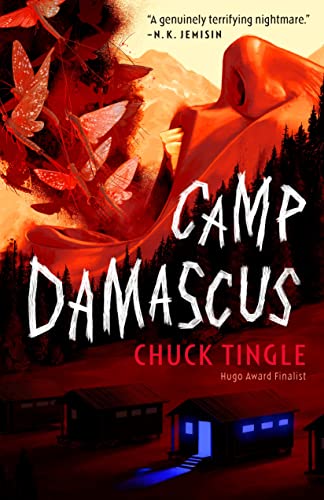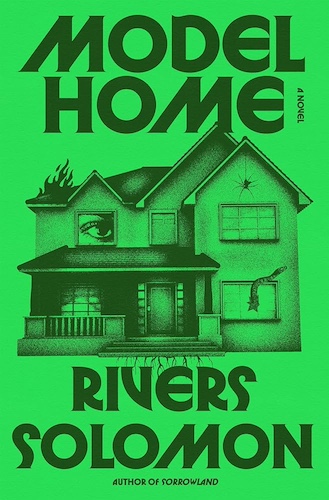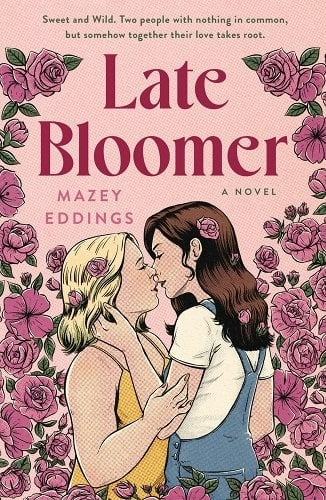“I was a cog in a terrible machine for years, and now I’m honored to be the monkey wrench dismantling it.” Rose grew up in the extremely religious town of Neverton, Montana, where the biggest industry is a gay conversion camp that boasts a 100% effectiveness rate. She’s just about to graduate high school, andRead More
This Queer Horror Book Will Haunt You: Model Home by Rivers Solomon
This was my first Rivers Solomon book, and from the first page, I understood why I’d heard such good things about them. Here are the opening lines: “Maybe my mother is God, and that’s why nothing I do pleases her. Maybe my mother is God, and that’s why even though she’s never once saved me,Read More
The Joy of Neurodivergent Romance: Late Bloomer by Mazey Eddings
Buy this from Bookshop.org to support local bookstores and the Lesbrary! If reading Here We Go Again by Alison Cochrun and Late Bloomer this year has taught me anything, it’s that I have a type in romance novels: two neurodivergent sapphics in love. When Opal wins the lottery, she’s overwhelmed by everyone in her lifeRead More
Who is Worthy of Survival at the End of the World? On the Edge of Gone by Corinne Duyvis
Buy this from Bookshop.org to support local bookstores and the Lesbrary! I want to preface this with that I read this for my Bi Book Club and it turns out the bisexual character is a supporting one, not the main one. So I will focus this review on that relationship. This was a really goodRead More
A Blossoming, Neurodiverse Love: Late Bloomer by Mazey Eddings
Buy this from Bookshop.org to support local bookstores and the Lesbrary! After winning the lottery, Opal Devlin puts all her money in a failing flower farm, only to find an angry (albeit gorgeous) Pepper Boden already living there. Though she’s unable to find her grandmother’s will, Pepper claims she’s the rightful owner of Thistle andRead More


